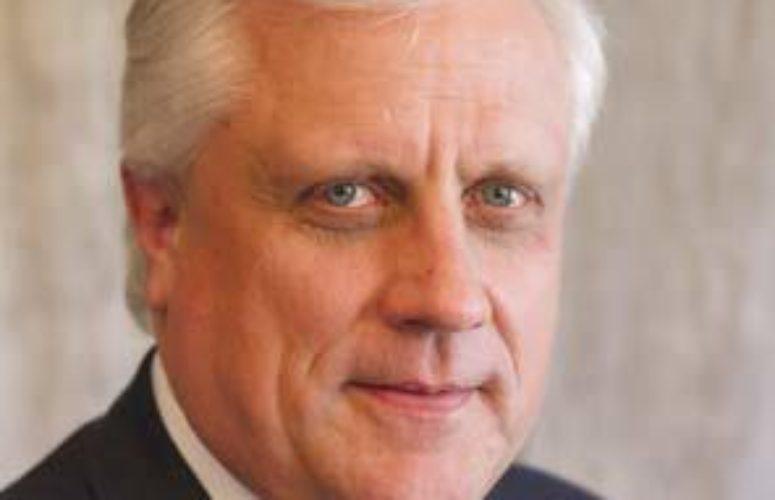
Harvard Professor Will Join Rutgers and Create Global Health Institute
On Apr 29, 2016Richard G. Marlink, a Harvard professor recognized internationally for research and leadership in the fight against AIDS, will join Rutgers as the inaugural Henry Rutgers Professor of Global Health and director of a new Global Health Institute at Rutgers Biomedical and Health Sciences (RBHS).
At the start of the AIDS epidemic, Marlink was instrumental in setting up the first HIV/AIDS clinic in Boston and studied the impact of the HIV virus in west and central Africa. After helping to start the Botswana-Harvard Partnership in 1996, he founded the Kitso AIDS Training Program, which would become Botswana’s national AIDS training program. Kitso meansknowledge in the local Setswana language.
Marlink, the Bruce A. Beal, Robert L. Beal, and Alexander S. Beal Professor of the Practice of Public Health at Harvard’s T.H. Chan School of Public Health and executive director of the Harvard AIDS Initiative, will join Rutgers in July, filling a key role in the strategic growth of RBHS: broadening the university’s presence in public health community efforts to improve health and wellness.
“Richard Marlink’s goal is to drive Rutgers’ continued evolution as one of the leading global health centers in the country, linking together and building upon significant resources we are committing to improving the public health as part of our strategic plan,” said Brian Strom, RBHS chancellor.
Strom added, “His expertise as a researcher, scholar and leader of grassroots health care delivery will be vital to Rutgers as we undertake global health initiatives that assist populations locally and around the world. His experiences will be particularly valuable in demonstrating to students how, as involved citizens, they can positively impact major societal issues.”
Initially, Marlink will focus on several areas: old and new infectious disease epidemics; the expanding burden of noncommunicable diseases in poor populations; the social and environmental threats to health, poverty and humanitarian crises; and inadequate local and developing country health systems. He will head the creation of a Global Health Institute that will support the development of global health research programs universitywide, the recruitment of faculty with interests in global health, and the creation of a web-based global health resource center for faculty and students with interests in these areas.
Marlink was the principal investigator for the Tshepo Study, the first large-scale antiretroviral treatment study in Botswana, in addition to conducting other clinical and epidemiological studies in the region. Also in Botswana, he was the country director for Harvard’s contribution to the joint Botswana and United States governments’ HIV/AIDS and TB training, monitoring and evaluation PEPFAR effort.
In the mid-1980s in Senegal, Marlink was part of the team of Senegalese, French and American researchers who discovered and then studied the second type of human AIDS virus, HIV-2. Since then, he has been involved in multiple HIV/AIDS care, treatment and prevention programs in many African countries, including in Botswana, Côte d’Ivoire, Democratic Republic of the Congo, Kenya, Lesotho, Malawi, Mozambique, Rwanda, Senegal, South Africa, Swaziland, Tanzania, Uganda, Zambia and Zimbabwe. He has also organized initiatives to enhance HIV/AIDS care in Brazil, Puerto Rico and Thailand.
Marlink has served as the scientific director, the vice president for implementation and the senior adviser for medical and scientific affairs at the Elizabeth Glaser Pediatric AIDS Foundation, where he was principal investigator of Project HEART, a five-country CDC/PEPFAR effort in Africa. That project began in 2004 and by 2011 had placed more than 1 million people living with HIV into care clinics. More than 565,000 were placed on life-saving antiretroviral treatment.
Since 2000, Marlink has been the founding member of the board of directors of the African Comprehensive HIV/AIDS Partnerships, a public-partnership among the government of Botswana and the Bill and Melinda Gates and Merck Foundations to provide ongoing support for numerous HIV/AIDS prevention, care and treatment efforts in that country.
Marlink has authored or co-authored more than 125 scientific articles; written a textbook, Global AIDS Crisis: A Reference Handbook; and co-edited the book, AIDS in Africa, 2nd Edition. Additionally, he served as chief editor for two special supplements to the journal AIDS and as executive editor of the seminal 320-author, three-volume textbook, From the Ground Up: A Guide to Building Comprehensive HIV/AIDS Care Programs in Resource Limited Settings.
A trained fellow in hematology/oncology at the Beth Israel Deaconess Medical Center at Harvard Medical School, Marlink received his medical degree from the University of New Mexico and his bachelor’s degree from Brown University.
Related Articles:





